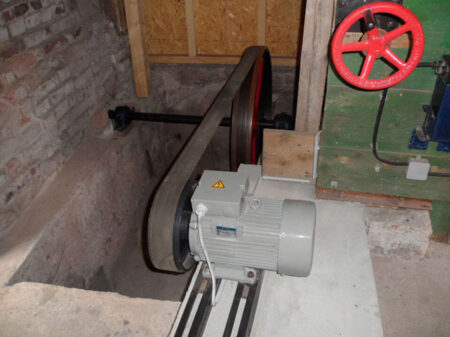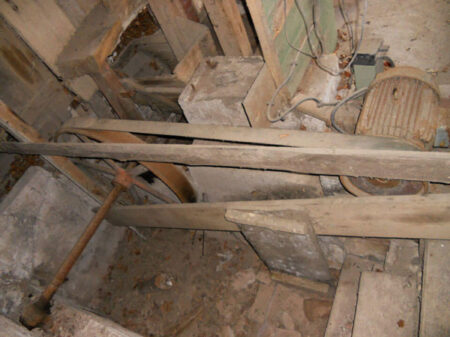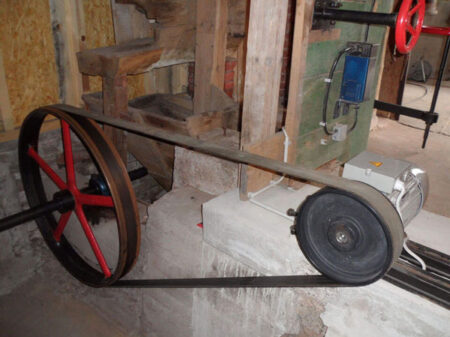Johannes Hübner Giessen donates towards the CoLab “Youth Welfare” project (Jugendhilfeprojekt CoLab).
In the recent past Johannes Hübner Giessen, the specialist for encoders and drive technology, has increased its commitment to social values and supported a project run by the charitable, non-profit CoLab GmbH with headquarters in Speyer, Germany. Standing unused at the start of the project the “Datteroder Mill” situated in the Werra-Meisner district in Hesse, Germany, has now been reconnected to the mains power grid utilizing state-of-the-art generators and control technology. Johannes Hübner Giessen supplied the three-phase synchronous generator and donated one thousand Euros. The majority of the work on the refurbishment project was carried out by youths with difficult backgrounds. Working together with these young people CoLab created the basis for them to take up training to gain qualifications in a technical occupation. The managing director of CoLab explains: “Our mission is to help young people who have got into difficulties to gain a foothold in society and the world of work. There is just one condition: honesty and the will to change.”
Appealing work in an intact atmosphere
To ensure sufficient distance to pervasive influences of a city environment CoLab relocated the residential accommodation unit consisting of four regular places and an emergency place to a rural area. Thomas Friedrich’s assumptions were confirmed shortly after the project began: it was noticeable how the visually appealing appearance of the water powered mill enabled the participating youths to become accustomed to structured daily routines. Education was provided in parallel to the work within the project. This made it possible to re-establish a normal social environment.
Modern generators and measurement techniques
The degree of innovation in the new installation is extremely high for a small power generating plant of this order of magnitude. The installation already begins feeding electricity into the grid at an initial speed of 500 rotations. Targeted modernisation measures made it possible to increase the amount of electricity fed into the mains by 30 percent. This was made possible by the multiple chamber system of the turbine. The permanent magnet 5 kW three-phase synchronous generator from Johannes Hübner Giessen is one of the main energy conversion components, which was specially designed to meet the requirements at the place of installation at the mill. In addition, sensing components are installed to monitor the level of water and control the turbine according to the amount of water present. The design changes mean it is possible to operate the small-scale power plant for the most part independent of the level of water flowing in the stream.
Plans for further cooperation
“We decided at the beginning of the project to offer the generator for a price reduced by an amount equivalent to our donation. That is our contribution towards implementing the project despite limited funds”, explains Prof. Ing. Ewald Ohl, head of the Energy and Drive Systems department at Johannes Hübner Giessen. Spurred on by the huge success of the concept implemented at the Mill, it is now planned to realize a comparable project for young women in difficulty. Exploratory discussions about financing the project are presently underway. The lively interest that both companies are experiencing is further proof of just how successful cooperation between social institutions and industrial companies can be.



